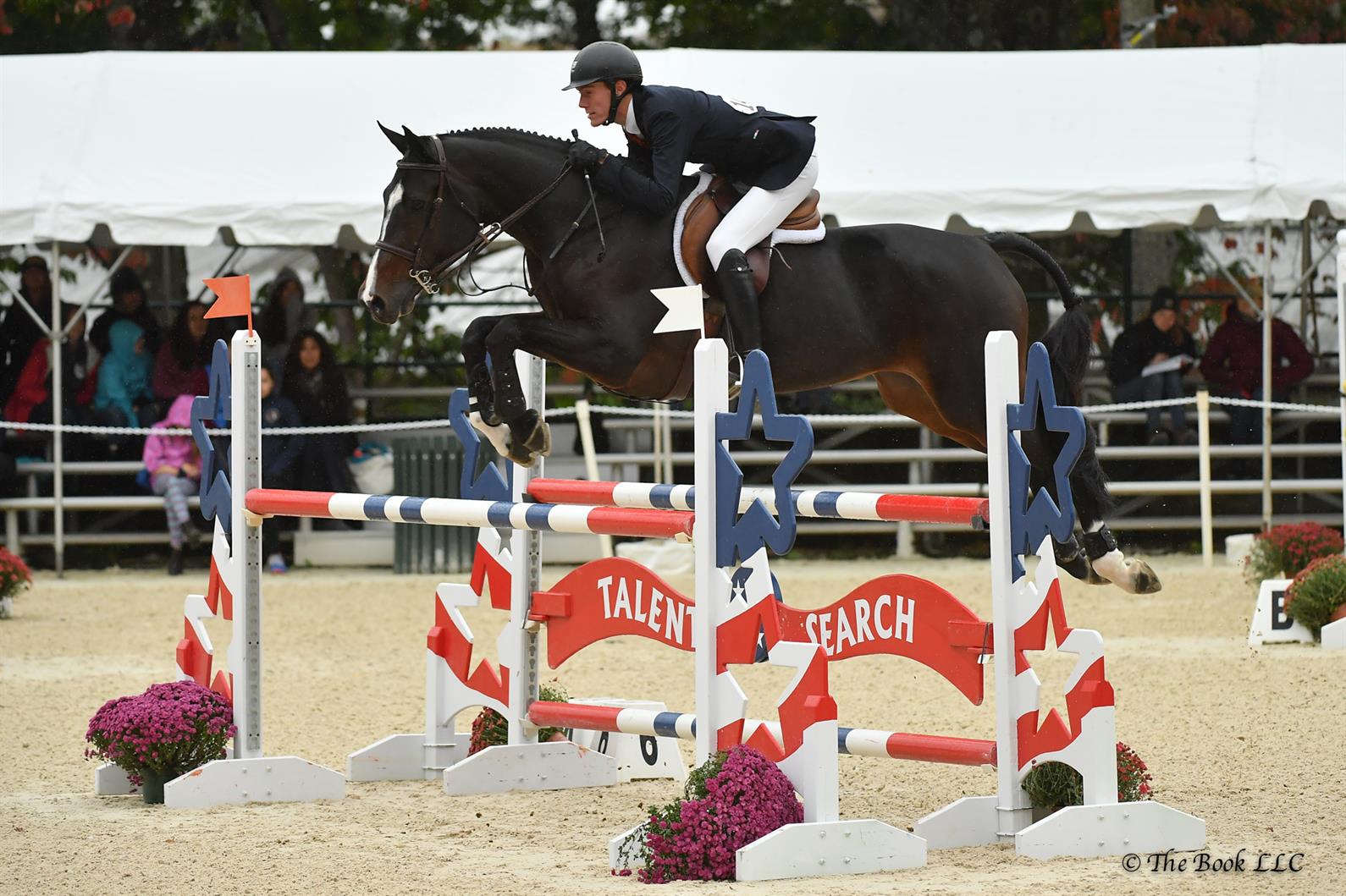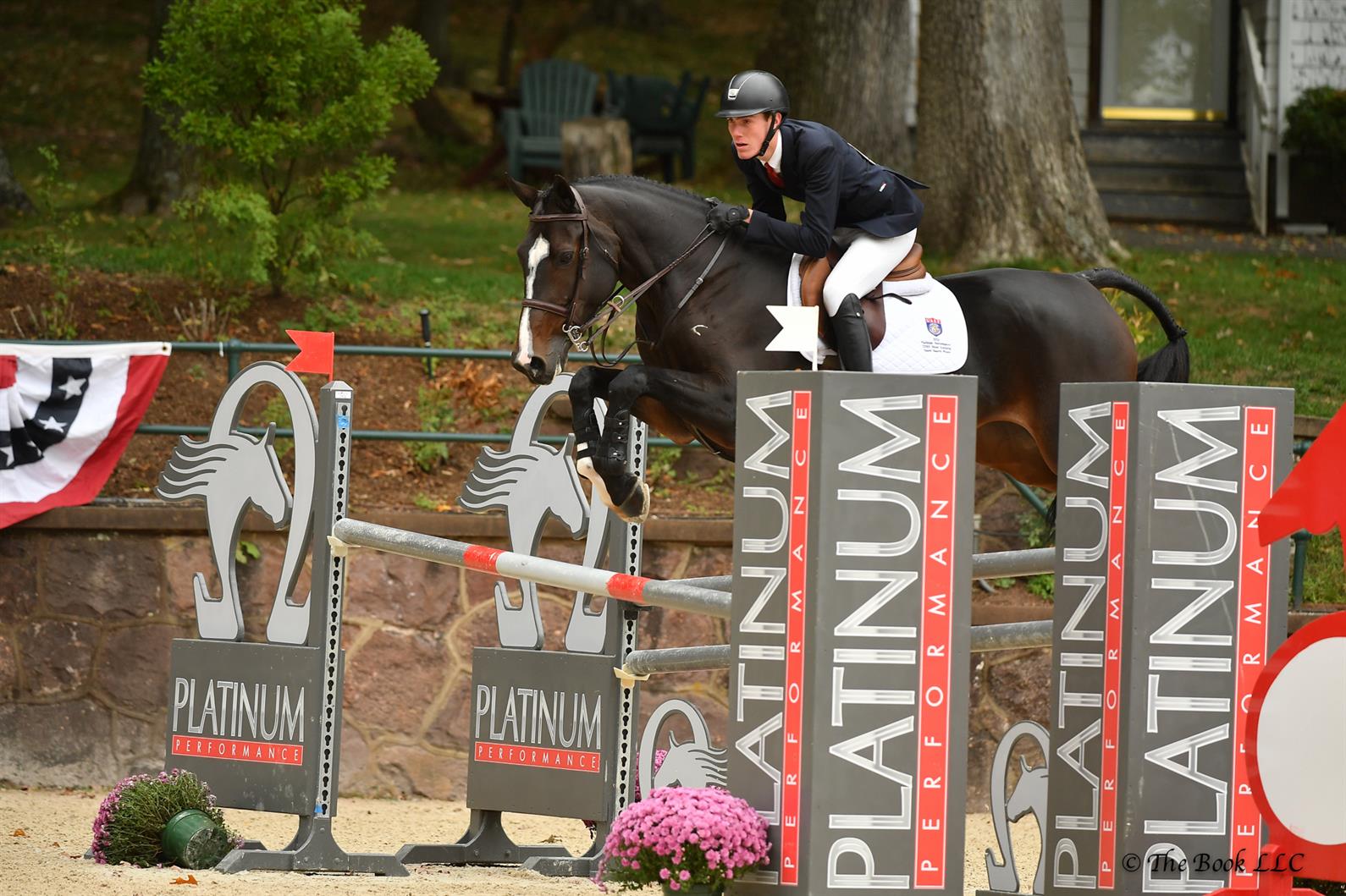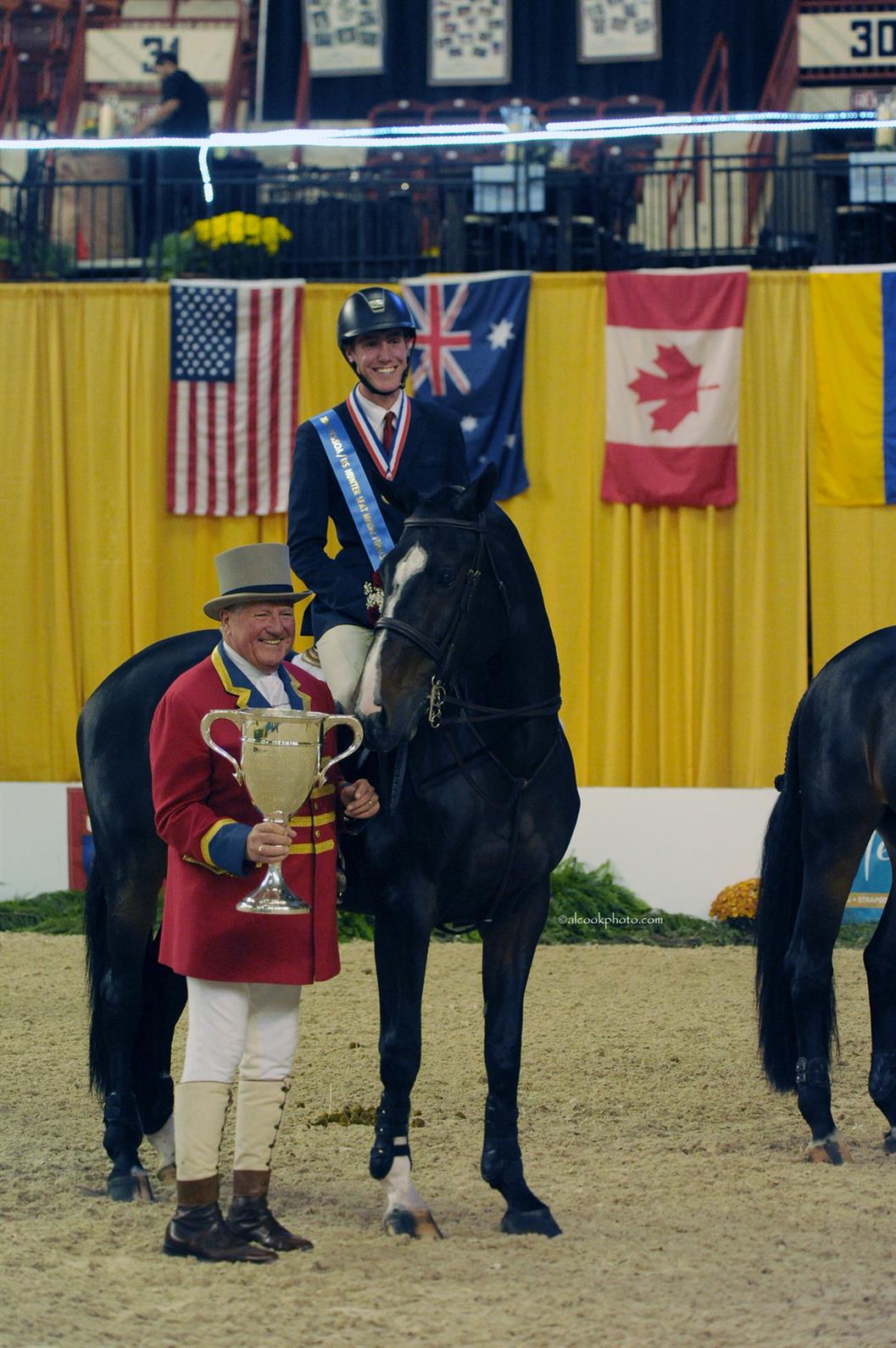TJ O’Mara, a 19-year-old Rumson, N.J., native, found much success in the equitation championships during his junior years. In 2016, O’Mara won the Platinum Performance/USEF Show Jumping Talent Search Finals – East and the US Hunter Seat Medal Final and finished third in the ASPCA Alfred B. Maclay National Championship. He is now a sophomore at the University of Kentucky, where he is an Agricultural Economics major. In addition to his studies, O’Mara also is maintaining a serious show schedule, competing in U25 and grand prix classes, and plans to turn professional after graduation. We caught up with him to find out how he balances horse sports and university studies, and how riding and competing have contributed to his academic success.

What factored into your decision to go to the University of Kentucky?
“I’d been traveling to Lexington ever since I was young, competing at the Kentucky Horse Park. So when I was trying to narrow down my college choices, I sat down with my dad. He mentioned the agriculture program here and said, ‘I really think it would benefit your riding if you go there, you’re surrounded by horses, and you’re involved in a great agriculture program like there is at UK.’
“The proximity to horses really appealed to me. I have a few friends who live and operate barns in Lexington, so I always knew I’d stay in practice with horses and riding. That was my main concern while choosing schools, because I want to turn professional after college. And since I was so familiar with Lexington, I felt most comfortable going there. I’ve always loved this city and the equine environment around Lexington.”
How do you think your riding career has helped you as a student?
“I think riding all these years has given me a competitive personality, so when it comes to my studies I almost get competitive against other students to excel at my academics.
“The organization that I need in riding also carries over to my studies. Every day I have a different schedule that I’m on, and everything is very planned, just as it is with my riding. I try to apply everything I’ve learned in my academics to my riding and vice-versa.
“Traveling all the time as a junior rider really helps you be disciplined with your studies in high school and middle school. When you get to college, you don’t have the help of your parents, and the teachers aren’t as focused on you as they were in high school, because there are so many students in the class. You really have to be disciplined in how you are communicating with your professors and with your parents, as well. It makes you mature as a person.”
Has riding in high-pressure competitions helped you cope with pressure in the rest of your life?
“There’s always pressure when it comes to school and there’s always going to be a lot of stress involved in

academics, but I think it puts it into perspective when you think about all the difficult situations you were in riding as a junior. The amount of pressure and stress I’ve put on myself all those years make academic situations seem like a no-brainer to me! My friends at school who’ve never competed get stressed out by deadlines and tests and they’ll say, ‘Why are you so calm about the three assignments you’ve got?’ But I think applying what I’ve learned about pressure in the ring and putting it all in perspective makes it easier for me.”
How have you been able to fit your riding and competition schedule in with your university studies?
“College has the benefit that I can schedule my courses myself, so this semester, since I’m traveling back and forth to Wellington, I’ve scheduled my classes on a Monday-Tuesday-Wednesday basis so I can leave Wednesday night, go to Florida, and compete there without worrying about my studies as much or worry about missing Thursday and Friday classes. Then I come back and can focus on school on Monday, Tuesday, and Wednesday. So I’m switching gears quite a bit, but it also a nice break coming back to school, and then I go right back to riding.
“Universities are very flexible, and there are so many athletes in classes that I find that the professors understand if you email them and say, ‘I’m going to have to miss a test while I’m away competing; is there any way I can take it on a different day?’ They’re usually able to do it. They’ve been very open to my wanting to build a career, and they’ve been very supportive.”
Have you been surprised by how many career paths there are for people in the equine world?
“When I first got here last year, they housed all the kids who were studying agriculture in one dorm. I met all different types of people, and most of them were studying equine studies. They were in lots of different fields of study, and it was interesting to see what they wanted to do. A lot want to go into breeding or training or vet work. That really shows how many aspects there are to this industry.
“A lot of people don’t want to go to college and want to go straight to being a professional, but I think it’s important that when you’re trying to get sponsors and owners in the future as a professional, it’s really key to know how to communicate and have depth in your communication. Owners, sponsors, and clients most likely have gone to college and could have careers in finance and business, so I think it benefits professionals to be able to relate personally and communicate professionally with those types of people.
“I never saw myself as a gung-ho business person, but when I got here and started immersing myself in it, I really gained a big interest in the field.”
What’s been your most useful class so far as you eye a post-college professional riding career?
“I think the accounting classes I’m taking right now are my most useful classes. I feel like I’ll end up using those in

(Photo: ©Al Cook - alcookphoto.com)
the future to keep a structured financial plan.
“When it comes to the business side of my sport, like all businesses, you have to have a financial system. I think most equestrians that go on to college probably study business or finance to have a better background in that when they become professionals, and I think that’s fantastic. It’s good to get that understanding at school so you’re not just thrown into the real world all of a sudden. It helps you to transition into it through college.
“Here, there are so many classes with equine-affiliated studies that go into business, so I’m able to apply my studies to situations I’m in now with my riding. It interests me, and I think it will be beneficial in the future.”
How have your studies widened your perspective on equestrian sport?
“Last year, we all had to pitch a topic that our documentary class could go investigate. I pitched the Kentucky Horse Park, and that ended up being chosen as one of the three topics for the entire class to research. So we researched the impact of the FEI Alltech World Equestrian Games™ that took place in 2010 at the Kentucky Horse Park. It brought awareness of horse sports to lot of people in the class, and it gave me more information on how Lexington was impacted financially and as a community by WEG. That gave me a really good overview of all these big events we compete in and how they can affect the surrounding towns and communities. We go to a horse show almost every weekend, and that affects the local businesses, and those businesses have input into the horse shows, from the food companies to the media companies that are there. It all ties together.”
What advice do you have for young equestrians who are now transitioning into college and want to keep riding and maybe also competing?
“If you want to ride, there’s always a way. I know a lot of people worry that they’ll have to stop riding all of a sudden when they go to college. But there are always barns around, and there are always going to be horses in your life. Having the dedication, passion, and determination to find horses while you’re in college and to continue riding, there’s always a way to make it happen. If you want to continue competing like I am, organization and focus are essential to that. You can find a way to ride, but you do have to know when to prioritize academics and riding.”
If you're looking for a college or university yourself, start with US Equestrian's online College Search at USequestrian.org, which also has resources on intercollegiate riding programs.
To learn more about hunter seat equitation, visit US Equestrian's hunter seat equitation page and the United States Hunter Jumper Association.
Want articles like this delivered to your inbox every week? Sign up to receive the Equestrian Weekly newsletter here.
This article is original content produced by US Equestrian and may only be shared via social media. It is not to be repurposed or used on any other website than USequestrian.org.


